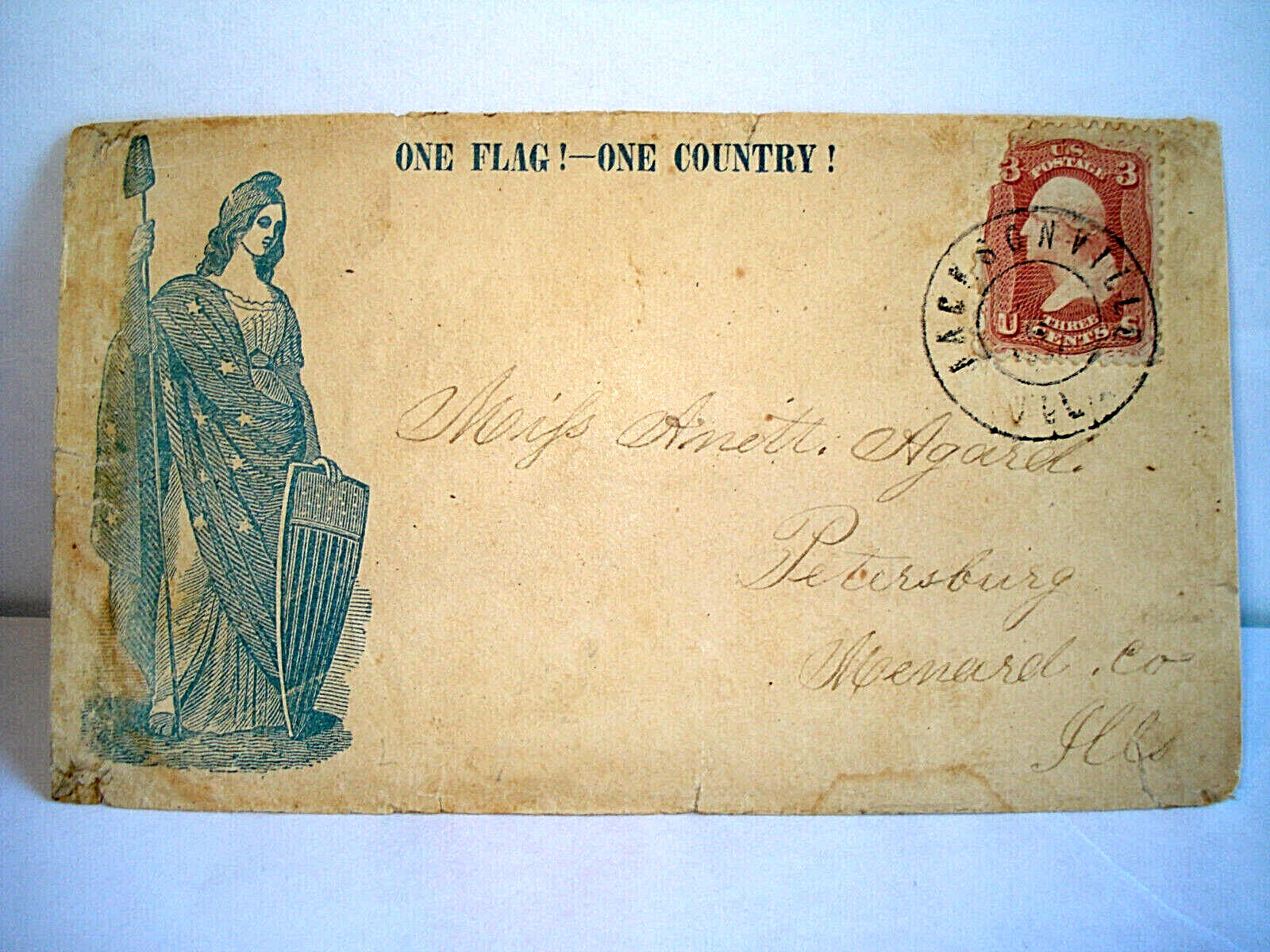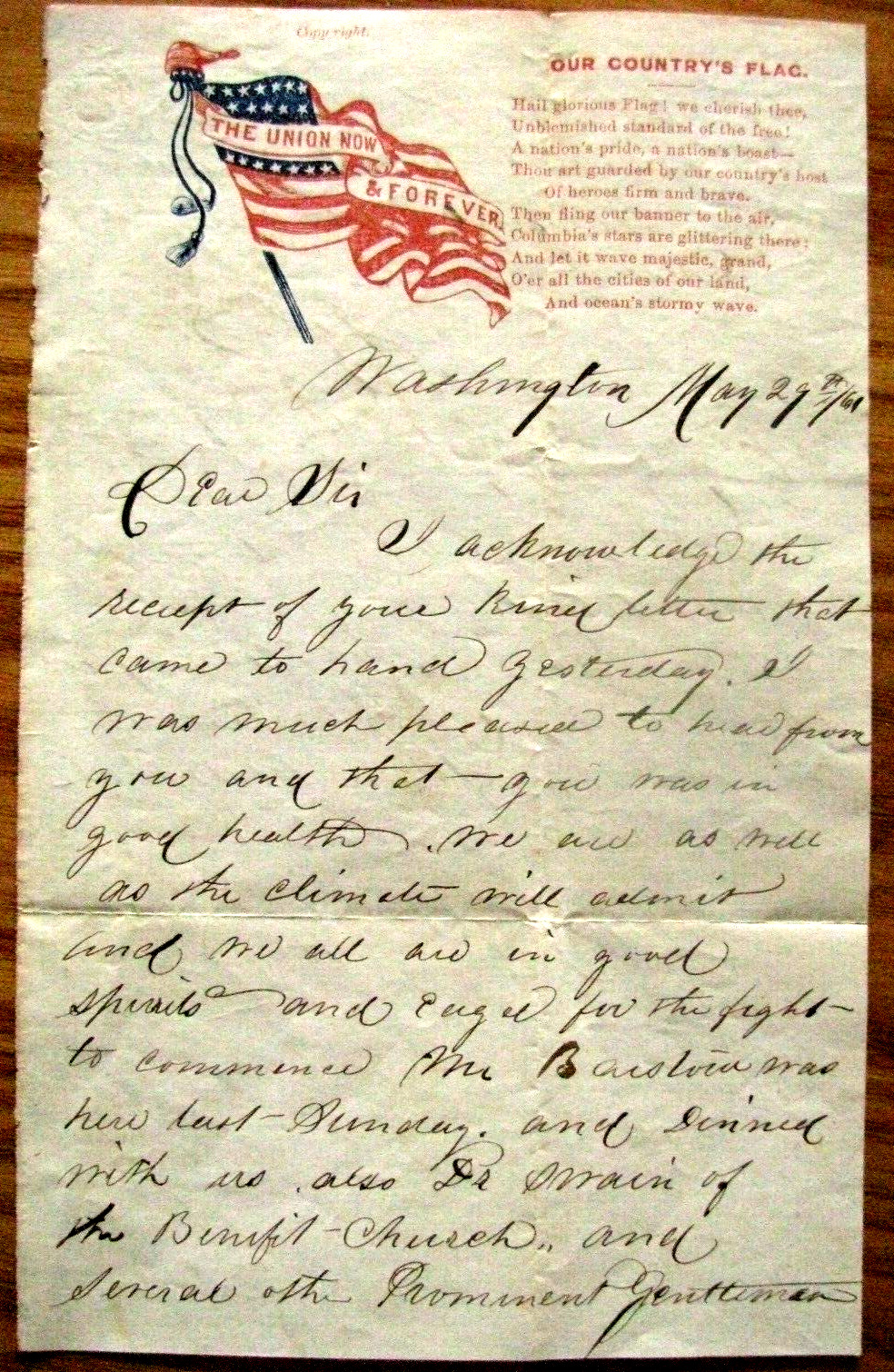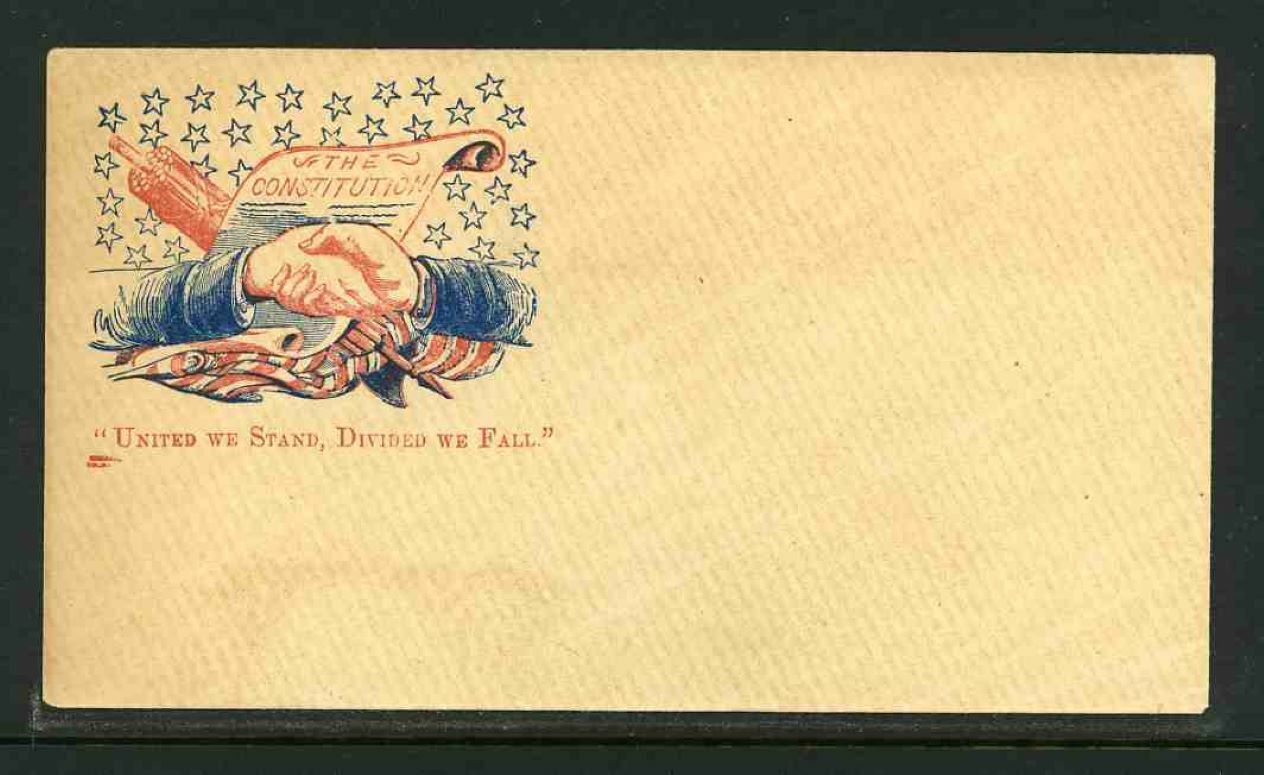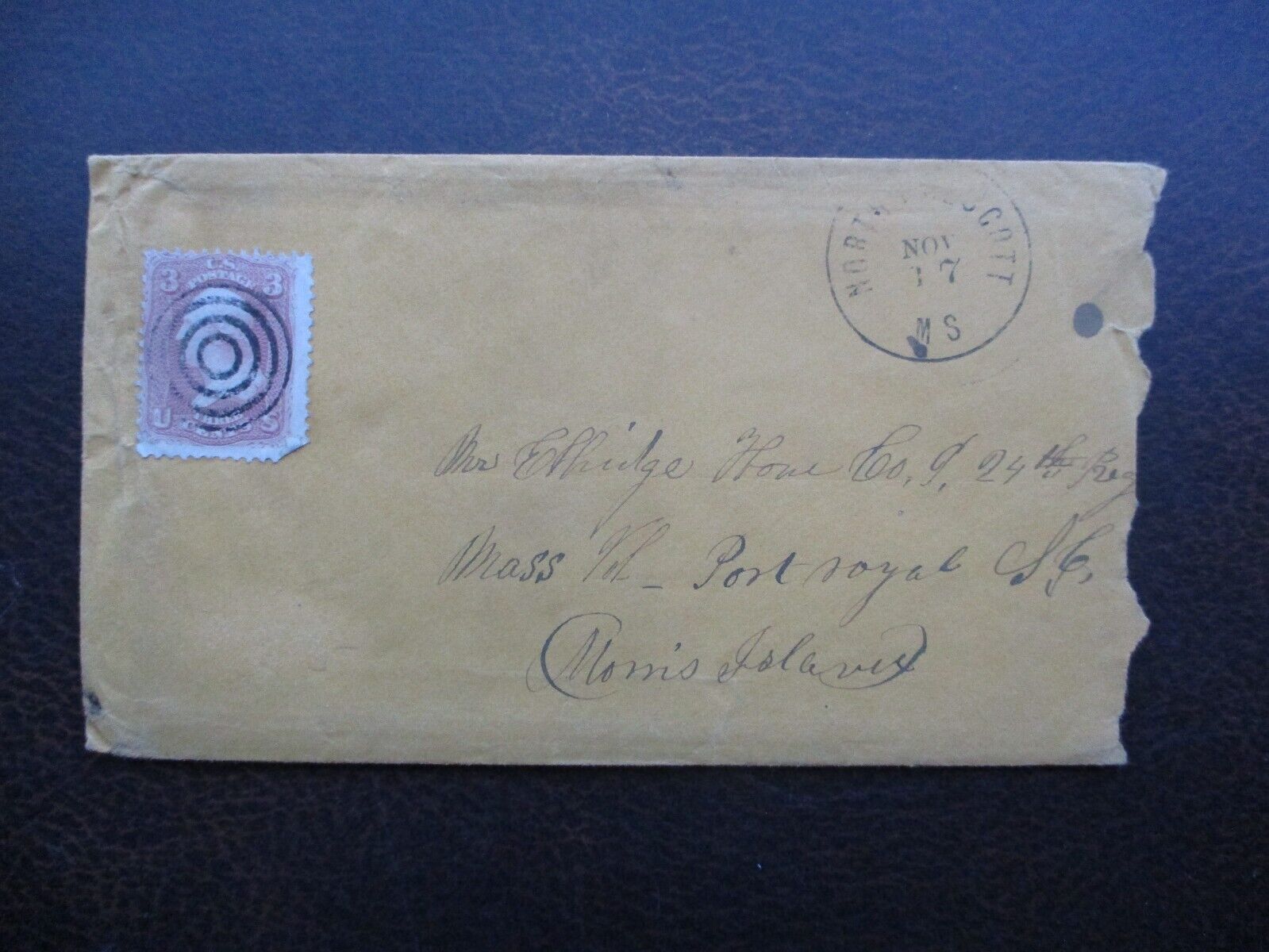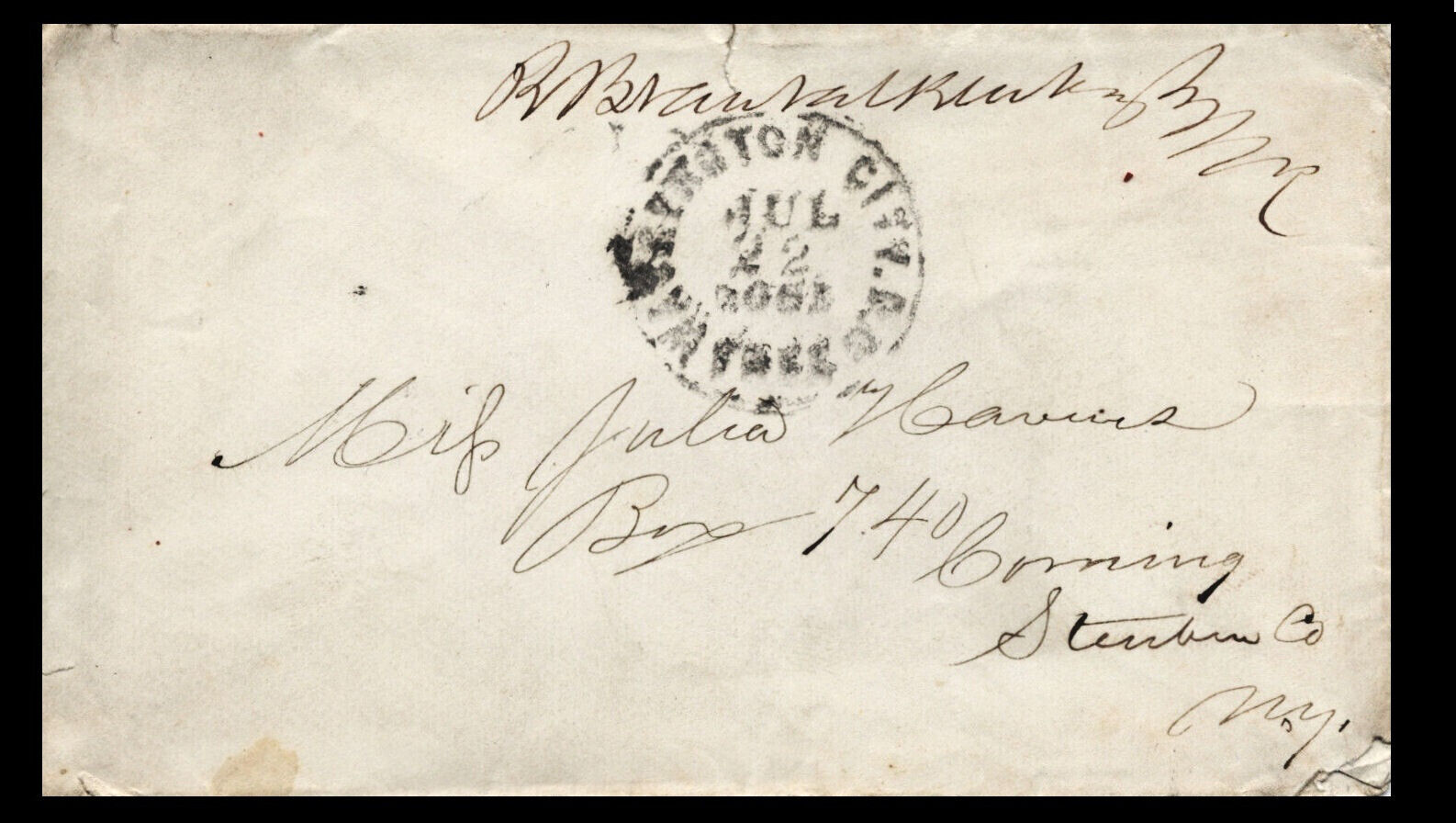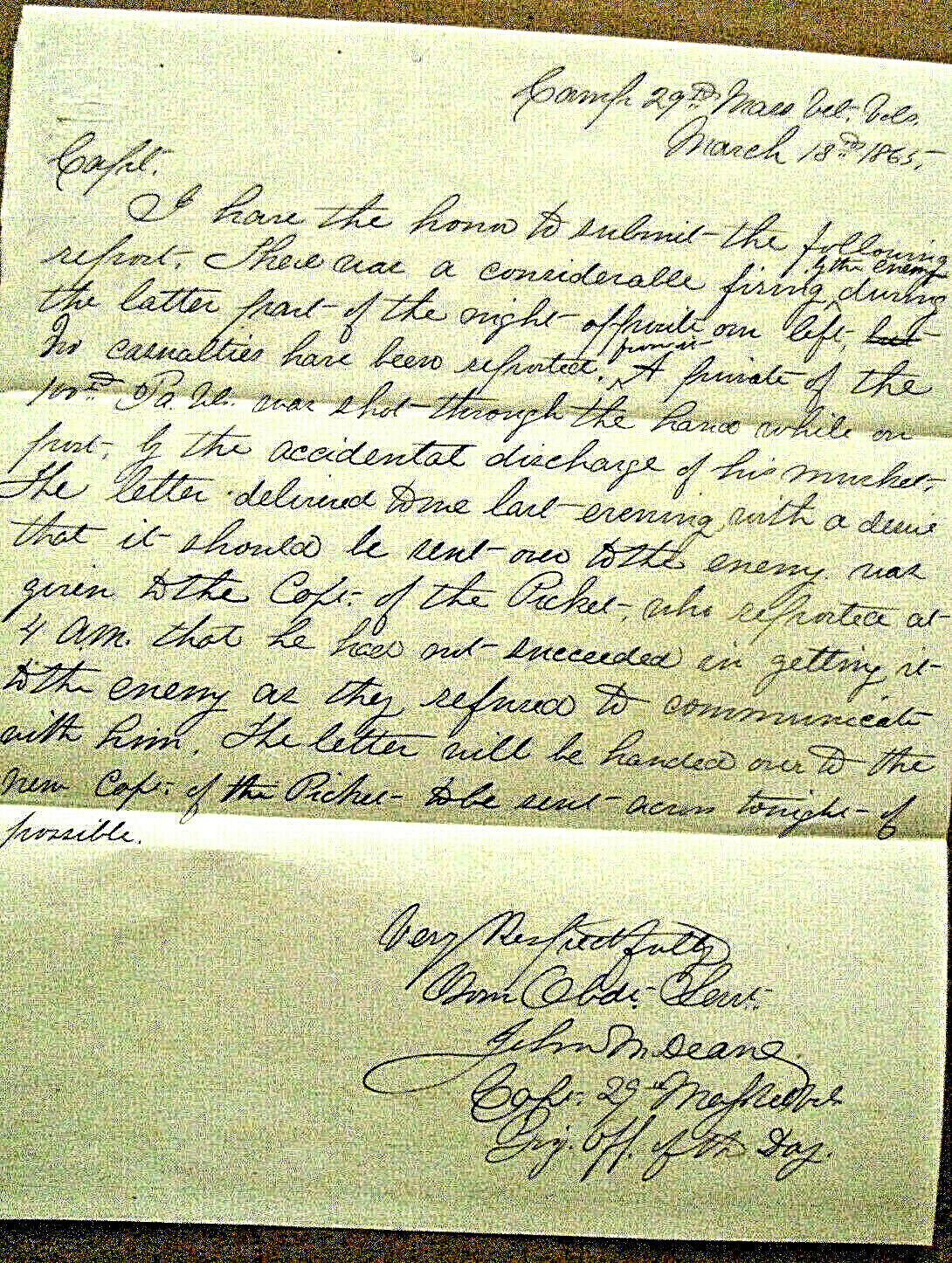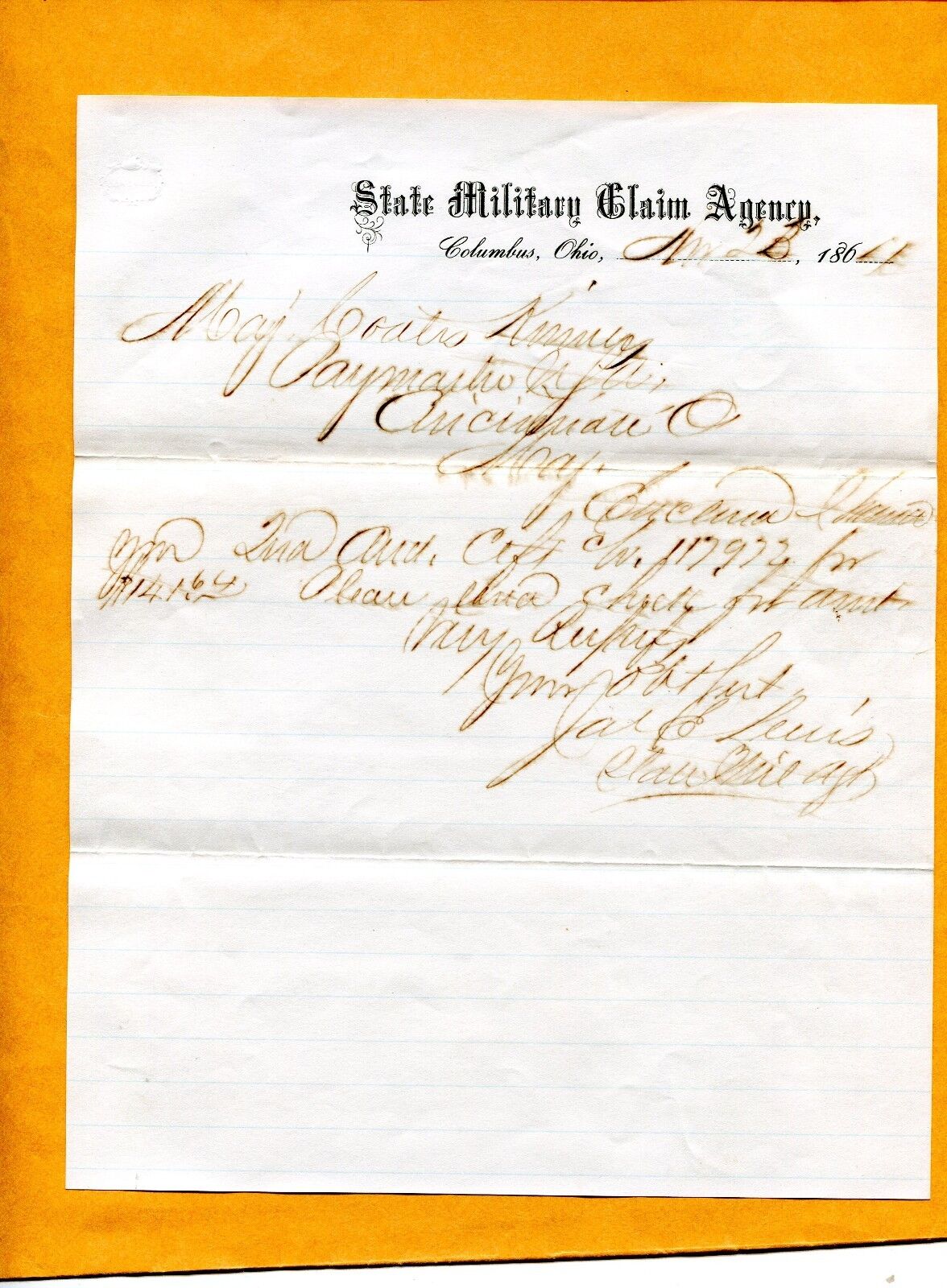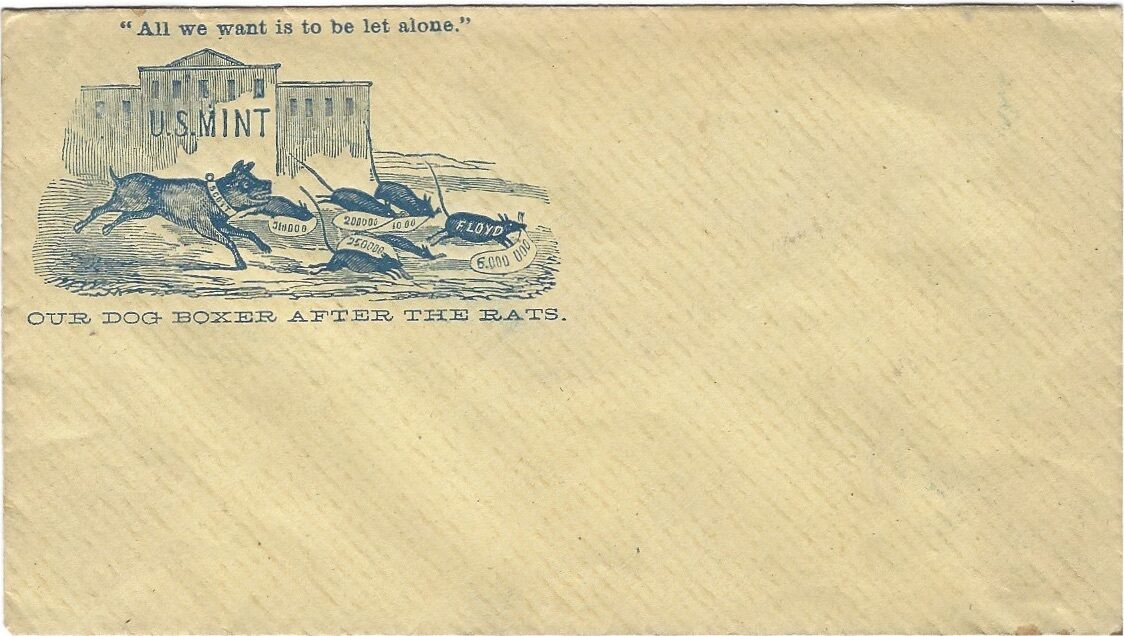-40%
1864 Civil War Letter — Skirmish at Buzzard Roost Gap, Georgia — 86th Illinois
$ 145.19
- Description
- Size Guide
Description
A weary Union soldier wrote this letter home to his wife in March 1864 during the prelude to the Atlanta Campaign. In it he discusses his regiment’s participation in the demonstration on Dalton, Georgia, including the February 26 skirmish at Buzzard Roost Gap. The gap was a strategic point along Rocky Face Ridge, the imposing and in many places impregnable high ground that had kept Union troops at bay since the Confederate withdrawal from Missionary Ridge the previous November. The author, who did not sign the letter but was most likely a member of the 86th Illinois Infantry, began writing from Ringgold, Georgia, on March 4, recounting the tiring marches that brought them to Buzzard Roost Gap:We left Chattanooga on the 22nd of last month for this place and, after a fatiguing march of about ten hours, camped in [a] site the Rebs had evacuated and gone to Tunnel Hill, about ten miles south of Ringgold on the Rail Road. We followed up and camped two miles from Tunnel Hill. On the night of the 25th at 12 o’clock at night we rec’d marching orders for three o’clock in the morning [to march] for Buzzard Roost Gap.
In the early morning fog of February 26, two brigades of Union General Jefferson C. Davis’s division of the 14th Corps advanced south from Tunnel Hill toward the gap. The fog having burned off by mid-day, Davis ordered sections of the 2nd Minnesota Battery and 19th Indiana Light Battery forward to a piece of high ground, where they began shelling the Confederate positions defending the gap. The 85th and 86th Illinois of Colonel Daniel McCook’s brigade were ordered forward beyond the artillery for an attack. The 85th strayed off to the right, but the 86th moved forward into a ravine in front of the Confederate works. Davis’s other brigade under General James D. Morgan attacked on the left, but was repulsed. With no further support the men of the 86th Illinois laid down on the ground under fire for the remainder of the day before being withdrawn at night. Of this skirmish the letter’s author writes:
We arrived there at 9 o’clock and marched down the valley in battle line, and we were maneuvered through the woods. The Rebs opened the Ball and our men followed suit. Our men maintained a steady front. We were supporting a battery. The Rebs got range of our battery and they gave us some sharp shooting. We had to lay down flat to the ground pretty near all day. The battery we were supporting had two horses killed and two men wounded. One died before we left the ground. We left the field at night [and] walked all night, so that was two nights and 3 days. Then we were ordered to Tunnel Hill that day and back at night.
The author resumed writing on March 8. By this time Colonel McCook’s brigade had withdrawn behind the front lines to Lee and Gordon’s Mill. With news of the skirmish already in newspapers, he provided some additional details about the skirmish:
I suppose you have read the account of our expedition before this, as it is in the papers. Our loss was not very heavy considering the number engaged, but it was enough. I am sure you will ask what was all this night marching for. We was retreating after night and trying to find out the Rebel force against us. We found they had about three to our one, so we withdrew satisfied with what we found out. It was our intention to keep all the Rebel force at Dalton or Tunnel Hill till Sherman got to Montgomery and we kept them from reinforcing Polk, and that we done.
During this time General William T. Sherman’s Army of the Tennessee had been engaged in the campaign against Meridian, Mississippi, and was opposed by Confederates led by General Leonidas Polk and Nathan Bedford Forrest. Sherman captured Meridian by February 14, but did not advance far enough east to threaten Montgomery, Alabama, and had turned back west to Vicksburg on February 20.
Our weary author concludes, “You must excuse this as I am very nervous this morning. I do not know unless it was the loss of sleep for two nights on guard.”
The letter is unsigned. It was written on four pages of a 5” x 8” bifolium letter sheet. The March 4 portion was written in pencil and the March 8 portion in ink. The letter is in excellent condition with light toning. Creased at the original folds. The full transcript is below:
Ringgold, Georgia
March 4th 186[4]
Dear Jennie
We left Chattanooga on the 22nd of last month for this place and, after a fatiguing march of about ten hours, camped in [a] site the Rebs had evacuated and gone to Tunnel Hill, about ten miles south of Ringgold on the Rail Road. We followed up and camped two miles from Tunnel Hill. On the night of the 25th at 12 o’clock at night we rec’d marching orders for three o’clock in the morning [to march] for Buzzard Roost Gap. We arrived there at 9 o’clock and marched down the valley in battle line, and we were maneuvered through the woods. The Rebs opened the Ball and our men followed suit. Our men maintained a steady front. We were supporting a battery. The Rebs got range of our battery and they gave us some sharp shooting. We had to lay down flat to the ground pretty near all day. The battery we were supporting had two horses killed and two men wounded. One died before we left the ground. We left the field at night [and] walked all night, so that was two nights and 3 days. Then we were ordered to Tunnel Hill that day and back at night.
Mar 8th 1864
I suppose you have read the account of our expedition before this, as it is in the papers. Our loss was not very heavy considering the number engaged, but it was enough. I am sure you will ask what was all this night marching for. We was retreating after night and trying to find out the Rebel force against us. We found they had about three to our one, so we withdrew satisfied with what we found out. It was our intention to keep all the Rebel force at Dalton or Tunnel Hill till Sherman got to Montgomery and we kept them from reinforcing Polk, and that we done.
You must excuse this as I am very nervous this morning. I do not know unless it was the loss of sleep for two nights on guard.
Please see my other items for more interesting Civil War letters, documents, and images.
Foreign shipping is provided through eBay's global shipping program.



